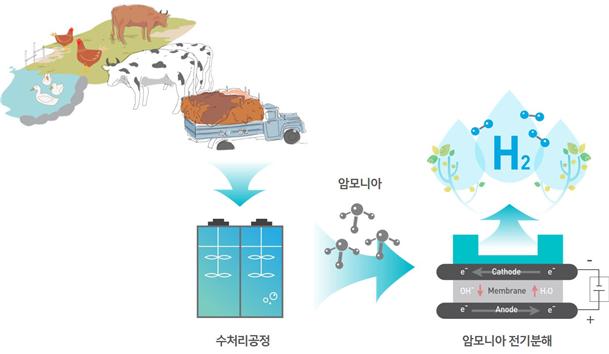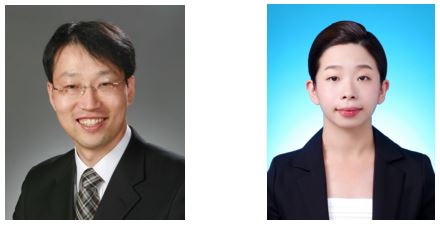Media Center
A multimedia mosaic of moments at GIST
GIST Excellence
[Press Release] Professor Jaeyoung Lee"s research team produces 100% pure hydrogen from waste ammonia
- 엘리스 리
- REG_DATE : 2016.01.07
- HIT : 1054
Professor Jaeyoung Lee"s research team produces
100% pure hydrogen from waste ammonia

(Figure 1). A conceptualization of how the 20 million tons of waste ammonia produced each year in Korea
can be easily processed to produce hydrogen, which is an environmentally friendly energy source.
Carbon dioxide emissions from fossil fuel usage has created numerous political and environmental issues for the world. As new sources of clean energy are sought, hydrogen stands out as a promising alternative thanks to its abundance and environmental innocuousness. However, there are serious issues in creating, storing, and transporting hydrogen as a potential fuel source.
To address these issues, a research team at the Gwangju Institute of Science and Technology (GIST) led by Professor Jaeyoung Lee of the School of Environmental Science and Engineering and the Ertl Center for Electrochemisty and Catalysis developed a novel method to produce hydrogen from ammonia by simple electrode-position of platinum catalysts. The research involved altering the surface morphology of platinum electrodes by fabricating them at various voltages until the optimal structure for ammonia conversion into hydrogen was found.
Their research was published by ChemSusChem on November 4, 2015, in a paper entitled "Alkaline Ammonia Electrolysis on Electrodeposited Platinum for Controllable Hydrogen Production" that was authored by Jieun Gwak (first author), Myounghoon Choun, and Professor Jaeyoung Lee.
This research has important implications for helping to reduce waste ammonia while at the same time producing an environmentally friendly energy source. Consider a country like Korea where some 20 million tons of waste ammonia is produced each year from various sources, including animal manure. The waste ammonia often has to be chemically treated using acids (e.g. hydrochloric acid), which is expensive and creates more secondary pollution. However, the research pursued by Professor Jaeyoung Lee"s team can more cheaply and efficiently convert this waste ammonia to produce 100% pure hydrogen with a Faraday efficiency of over 80%. For comparison, current electrolysis methods of producing hydrogen from water require three times more electricity.

Professor Jaeyoung Lee said, "This research achievement is significant in that it confirmed the possibility of processing waste ammonia in an environmentally friendly manner. Assuming that Korea can implement this process on an industrial scale, the resulting hydrogen could be used as a clean energy source to cover 12.6% of Korea"s entire electrical consumption."